-
 bitcoin
bitcoin $107015.826941 USD
-2.18% -
 ethereum
ethereum $3637.352324 USD
-5.18% -
 tether
tether $0.999831 USD
-0.02% -
 xrp
xrp $2.338078 USD
-6.23% -
 bnb
bnb $998.272150 USD
-6.97% -
 solana
solana $167.598257 USD
-10.12% -
 usd-coin
usd-coin $0.999863 USD
0.01% -
 tron
tron $0.282573 USD
-5.09% -
 dogecoin
dogecoin $0.169891 USD
-7.39% -
 cardano
cardano $0.557554 USD
-7.03% -
 hyperliquid
hyperliquid $39.914802 USD
-5.85% -
 chainlink
chainlink $15.414549 USD
-9.97% -
 bitcoin-cash
bitcoin-cash $510.361911 USD
-4.26% -
 ethena-usde
ethena-usde $0.999194 USD
-0.03% -
 stellar
stellar $0.282092 USD
-6.07%
What happens to your crypto if you lose your private key?
Losing your private key means permanent loss of access to your crypto—no one can recover it, and the assets remain frozen on the blockchain forever.
Oct 29, 2025 at 04:01 pm
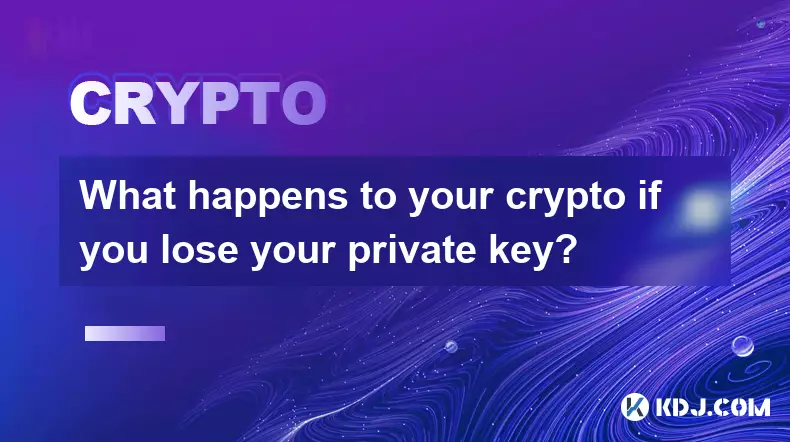
Understanding the Role of Private Keys in Crypto Ownership
1. A private key is a cryptographic code that allows a user to access and manage their cryptocurrency holdings on a blockchain network. Without this unique string of characters, no transaction can be authorized from a specific wallet address.
2. The relationship between a private key and a public address is mathematically secured through encryption algorithms. While anyone can see the balance of a public address, only the holder of the corresponding private key can initiate transfers.
3. Unlike traditional financial systems, there is no central authority in most blockchain networks that can reset or recover lost credentials. This design prioritizes decentralization and security over convenience.
4. If a private key is lost, the assets associated with that wallet remain on the blockchain indefinitely but become permanently inaccessible. They are not deleted or reassigned; they simply cannot be moved by anyone.
5. Numerous cases exist where individuals have lost access to millions of dollars worth of cryptocurrency due to misplaced hardware wallets, forgotten passwords, or damaged storage devices containing private keys.
Your Crypto Becomes Irretrievable Forever
1. Once a private key is lost and no backup exists—such as a seed phrase—the digital assets tied to that wallet are effectively frozen for eternity. No software tool or recovery service can regenerate the correct private key without original data.
2. Blockchain networks rely on cryptographic integrity, meaning any attempt to guess a private key would require solving near-impossible mathematical problems. The odds of randomly generating a matching key are astronomically low.
3. Even advanced computing technologies like quantum computers, while theoretically capable of breaking certain encryption methods, are not currently able to compromise widely used elliptic curve cryptography within a feasible timeframe.
4. There are no mechanisms built into major blockchains such as Bitcoin or Ethereum to reverse transactions or restore access based on identity claims. Ownership is proven solely through possession of the private key.
5. As a result, lost private keys lead to permanent loss of control over funds, contributing to the gradual reduction of circulating supply in some cryptocurrencies over time.
Prevention and Best Practices for Key Management
1. Users should always write down their seed phrases during wallet setup and store them in secure, offline locations such as fireproof safes or metal backup devices designed for crypto storage.
2. Avoid storing private keys or seed phrases in digital formats like screenshots, text files, or cloud storage services, which are vulnerable to hacking, malware, or accidental deletion.
3. Consider using hardware wallets for long-term storage, as they keep private keys isolated from internet-connected devices and reduce exposure to online threats.
4. For larger holdings, implementing multi-signature wallets can add an extra layer of protection. These require multiple private keys to authorize a transaction, distributing risk across different parties or devices.
5. Regularly test your recovery process by restoring your wallet on a secondary device using only the backup information, ensuring it works before relying on it in an emergency.
Frequently Asked Questions
Can a crypto exchange help me recover my private key?No. Exchanges do not have access to your private keys if you use a non-custodial wallet. Even with custodial wallets, recovery depends on identity verification and internal policies, but true private key ownership means only you hold access.
What is the difference between a seed phrase and a private key?A seed phrase (usually 12 or 24 words) is a human-readable representation used to generate one or more private keys. It acts as a master backup for all keys derived from it, making it equally critical to protect.
If someone finds my old hard drive with a wallet file, can they take my crypto?Yes. If the wallet file is unencrypted or the password is weak, anyone who gains physical or digital access to it may extract the private keys and transfer the funds. Encryption and strong passphrases are essential defenses.
Are there insurance options for lost private keys?Traditional insurers rarely cover losses due to lost private keys, as these are considered self-inflicted and outside standard risk models. Some specialized crypto custody firms offer insured storage solutions, but individual users typically bear full responsibility.
Disclaimer:info@kdj.com
The information provided is not trading advice. kdj.com does not assume any responsibility for any investments made based on the information provided in this article. Cryptocurrencies are highly volatile and it is highly recommended that you invest with caution after thorough research!
If you believe that the content used on this website infringes your copyright, please contact us immediately (info@kdj.com) and we will delete it promptly.
- Sequans, Bitcoin, and Debt Reduction: A NYC Perspective on a Bold Move
- 2025-11-05 03:50:12
- MoonBull, Crypto Presales, and Solana WLFI: Riding the Wave to Big Gains
- 2025-11-05 03:25:02
- BeCEXY: Unlocking CEX Token Rewards with Hidden Codes in Web3 Gaming
- 2025-11-05 02:50:02
- Decred, Dash, and Internet Computer: Privacy, Predictions, and Unexpected Pumps!
- 2025-11-05 02:50:12
- BlockchainFX, Digitap, Crypto Coin: Decoding the Next Big Thing in 2025
- 2025-11-05 02:50:12
- Bitcoin Liquidations, Smart Money, and $HYPER: Decoding the Crypto Dip
- 2025-11-05 02:55:01
Related knowledge
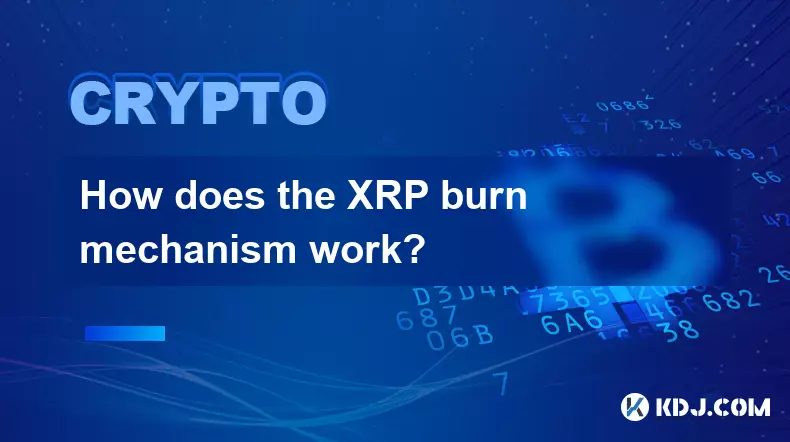
How does the XRP burn mechanism work?
Oct 25,2025 at 09:23am
The XRP Burn Mechanism: Understanding the BasicsThe XRP burn mechanism is an integral part of the Ripple network’s design, ensuring long-term stabilit...
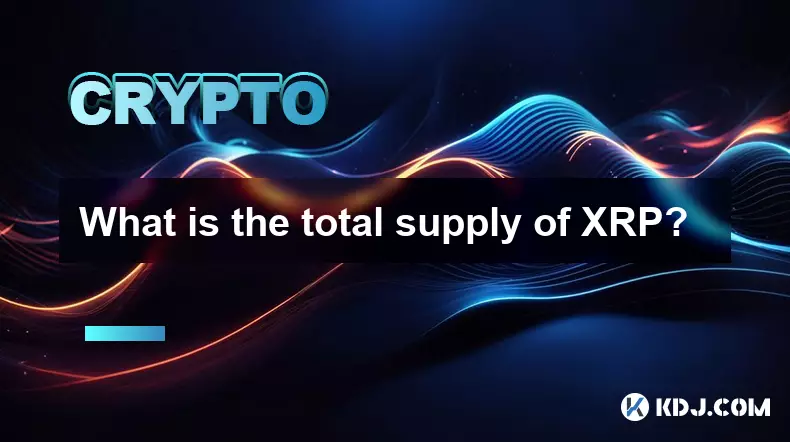
What is the total supply of XRP?
Oct 26,2025 at 04:00pm
The total supply of XRP is 100 billion tokens. This number was established at the inception of the cryptocurrency and remains fixed, meaning no additi...

How to find my XRP transaction hash (TxID)?
Oct 28,2025 at 12:54am
Understanding XRP Transaction Hash (TxID)1. Every transaction on the XRP Ledger generates a unique identifier known as a transaction hash, or TxID. Th...

Can you store XRP on a MetaMask wallet?
Oct 28,2025 at 03:37pm
Understanding XRP and MetaMask Compatibility1. XRP operates on the Ripple network, which follows a different protocol than Ethereum-based tokens. This...
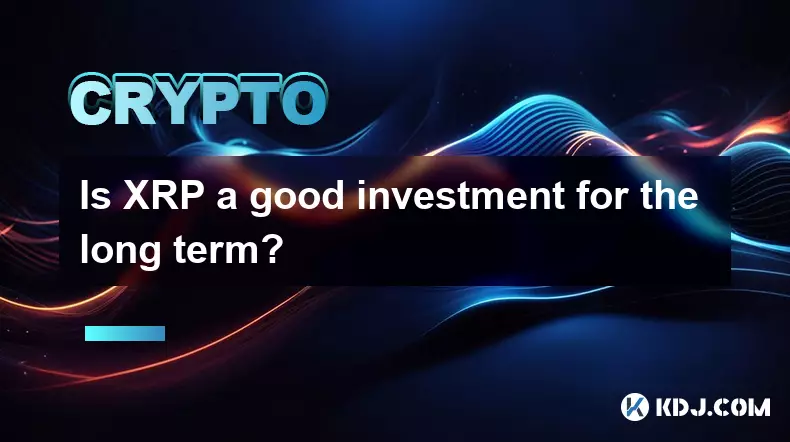
Is XRP a good investment for the long term?
Oct 25,2025 at 09:00pm
Understanding XRP’s Role in the Cryptocurrency Ecosystem1. XRP operates as a digital asset designed for fast and low-cost international money transfer...
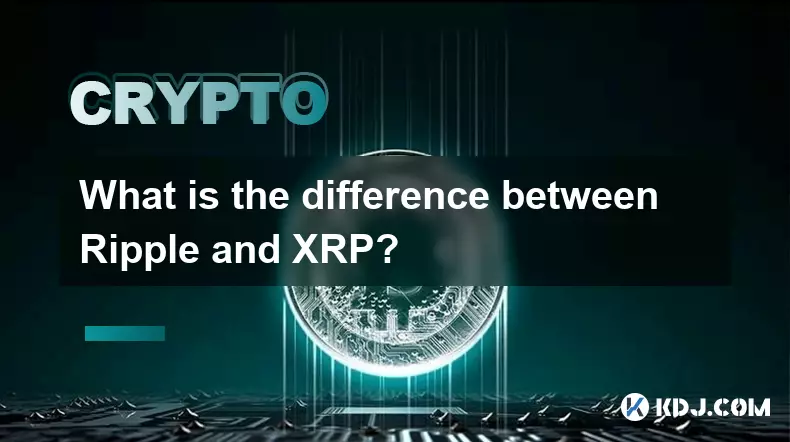
What is the difference between Ripple and XRP?
Oct 26,2025 at 09:19am
Difference Between Ripple and XRP1. Ripple refers to a technology company that develops solutions for global financial transactions, particularly targ...

How does the XRP burn mechanism work?
Oct 25,2025 at 09:23am
The XRP Burn Mechanism: Understanding the BasicsThe XRP burn mechanism is an integral part of the Ripple network’s design, ensuring long-term stabilit...

What is the total supply of XRP?
Oct 26,2025 at 04:00pm
The total supply of XRP is 100 billion tokens. This number was established at the inception of the cryptocurrency and remains fixed, meaning no additi...

How to find my XRP transaction hash (TxID)?
Oct 28,2025 at 12:54am
Understanding XRP Transaction Hash (TxID)1. Every transaction on the XRP Ledger generates a unique identifier known as a transaction hash, or TxID. Th...

Can you store XRP on a MetaMask wallet?
Oct 28,2025 at 03:37pm
Understanding XRP and MetaMask Compatibility1. XRP operates on the Ripple network, which follows a different protocol than Ethereum-based tokens. This...

Is XRP a good investment for the long term?
Oct 25,2025 at 09:00pm
Understanding XRP’s Role in the Cryptocurrency Ecosystem1. XRP operates as a digital asset designed for fast and low-cost international money transfer...

What is the difference between Ripple and XRP?
Oct 26,2025 at 09:19am
Difference Between Ripple and XRP1. Ripple refers to a technology company that develops solutions for global financial transactions, particularly targ...
See all articles










































































